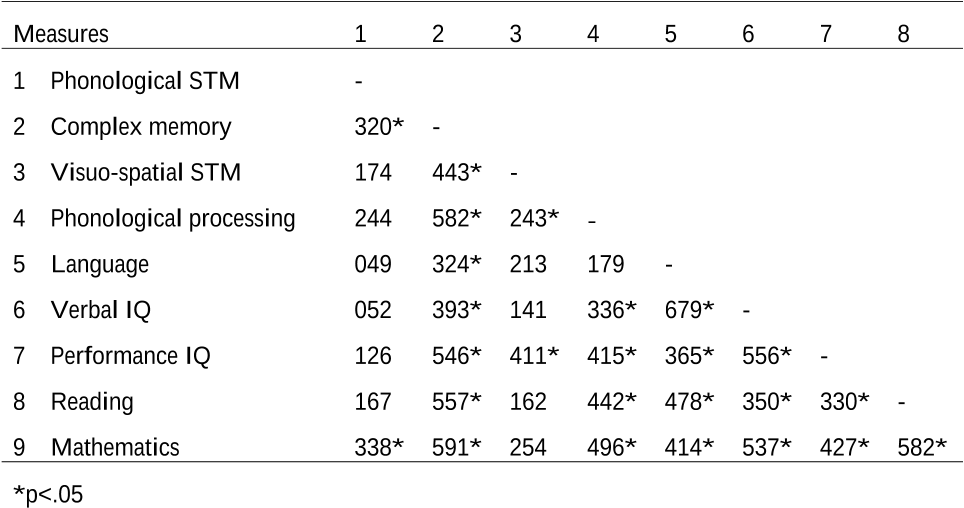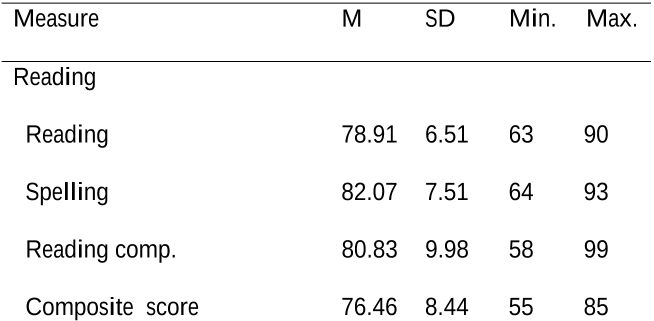Q2. What is the main limitation of the study?
One limitation of the assessment of working memory skill in the present study is thedependence of verbally-based assessment methods only.
Q3. What is the main argument of Swanson’s study?
Swanson has argued that working memory provides a resource that allows the learner to integrate information retrieved from long-term memory with current inputs, and so that poor working memory capacities will compromise the child’s attempts to carry out such important cognitive activities (Swanson & Saez, 2003; Swanson & Beebe-Frankenberger, 2004).
Q4. What can be done to reduce the heavy storage and processing of sentences?
In activities such as holding a sentence in mind while writing it down, the heavy storage and processing can be reduced by keeping sentences short and redundant, and using highly familiarvocabulary.
Q5. What are the test reliability coefficients for children aged between 5 and 8 years?
Test-retest reliability coefficients for children aged between 5 and 8 years are .53, .74, and .83 for backward digit recall, counting recall and listening recall respectively.
Q6. What could be done to reduce the burden of monitoring the child’s current place within the task?
Tasks with complex structures could be simplified into component parts as a means of reducing the burden of monitoring the child’s current place within the task.
Q7. What were the independent predictors of reading ability in this analysis?
The independentpredictors of reading ability in this analysis were mathematics and language scores, but not complex memory scores.----------------------------Tables 5 and 6 about here----------------------------The predictors of mathematics scores were also explored in a series of multipleregression analyses.
Q8. What is the Wechsler Intelligence Scale for Children?
Participants also completed the Wechsler Intelligence Scale for Children - 3rd UK Edition (WISC-IIIUK; Wechsler, 1992), yielding measures of verbal IQ and performance IQ.
Q9. What is the link between working memory and reading ability?
working memory and phonological short-term memory have been found to have dissociable links with learning abilities (e.g., Gathercole & Pickering, 2000; Swanson et al., 2004), suggesting that variation in working memory scores is not mediated simply by the contribution of phonological STM to performance on complex memory tasks (e.g., Baddeley & Logie, 1999).
Q10. What is the test reliability for the rhyming task?
The rhyme task assesses the child’s ability to identify rhyming words in sequences of three monosyllabic words such as sand, hand, cup and bead, wheat, seat.
Q11. Why does the association between working memory and learning difficulties in children with reading disabilities be so important?
The authors propose that this association arizes because working memory acts as a bottleneck for learning in classroom activities, and suggest that effective management of working memory loads in structured learning activities may ameliorate the problems of learning that are associated with impairments of working memory.
Q12. What is the association between working memory and reading ability?
The association between working memory and reading ability in this sample of childrenwith learning disabilities was not mediated by fluid intelligence, verbal abilities, short-term memory or phonological processing skills.



